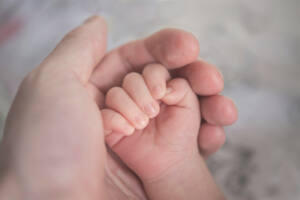
WelCom October 2024
Roger Ellis, Advocacy Adviser, Caritas Aotearoa New Zealand
The parable of the Good Samaritan1 underscores the need to help those in need. The Greatest commandments2 – loving God and loving our neighbour – require similar humane attitudes and actions. This relates to the Catholic Social Teaching principle regarding the Preferential option for the poor. In addition, children are a gift from God and are highly valued in God’s economy. In the Gospel of St Mark (Mark 10:14) Jesus said, ‘Let the little children come to me; do not stop them; for it is to such as these that the kingdom of God belongs.’
Against this backdrop the recent proposal by the ACT Party to sanction people who have children while on a welfare benefit attacks the dignity of the adults and children involved. There is also some irony in the fact that the Government wishes to reduce the numbers of people receiving the jobseeker support benefit while at the same time the Reserve Bank of New Zealand is deliberately creating a recession and higher unemployment as part of its strategy for reducing inflation.3
The ACT policy discriminates by saying, in essence, that if you’re poor and receiving a benefit then you should not be allowed to get pregnant and if you do then we will punish you by reducing your already meagre income. One also wonders what effect such policies would have on a vulnerable mother who is weighing up whether to keep her baby or to abort it. All human life is valuable. Government welfare policies should not be used as instruments to social engineer particular population outcomes.
Using the welfare system to divide children into those born to ‘worthy’ families and those born to ‘unworthy’ families tears at the social fabric of our society, erodes a sense of community and adds to existing divisions.
It’s a slippery slope once governments begin to determine which people can have children. Such a philosophy undermines the dignity of all human beings and replaces it with a utilitarian approach – the greatest good for the greatest number. Proposals to reduce poverty by discouraging or preventing births to the poor have deep eugenic roots which further promote the idea that some people have greater value and subsequently greater freedoms, than others. We should be keeping well away from such policies.
A better approach, more consistent with human dignity, would be to stop blaming the victims of a deliberately created recession and instead focus on promoting innovation, investment and new jobs so that people could move from welfare into work.
1 Luke 10:25-37
2 Matthew 22:37-40
See Gospel reading and reflection, Sunday 6 October 2024, Mark 10:2-16